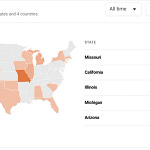This Episode of On Culture Interacts with Gnats and Camels - from The Embassy -
Here is an excerpt -
Instead of a real conflict about a real situation faced by real people - answering the question how does our Christian theology fit into this real life situation? … what are the missional implications of loving those whom we are called to reach while holding to what we believe to be true theologically? We get something far stupider - “you are bad.”
Jesus spent a lot of time (a distressing amount of time in the eyes of the religious leaders of the day) with people who were publicly living outside of the teachings and practices given to God’s people. One of the chief “proofs” in the eyes of those leaders, the Pharisees, that Jesus could not be a true prophet was their belief that a true prophet would know how bad these people were. The assumption being that anyone who had this knowledge would not go to their houses, join them for dinner, enjoy their hospitality. They were wrong about all of that. That is the context of his saying -
Jesus answered them, “It is not the healthy who need a doctor, but the sick. I have not come to call the righteous, but sinners to repentance.”
Luke 5:31-32
I can understand that some might be offended by the apparent implication that those at a same-sex or transgender wedding are the sick who need the doctor. I mean that only in so far as all of us do. Jesus’ words are on two levels. Coming after his sermon on the mount, where none who honestly read this teaching would call themselves ‘righteous’ - he is saying not only that these public ‘sinners’ need to be restored, but that those asking the question need also to be restored, just from a different malady. It is the central lesson of the parable of the prodigal son. The older brother needs grace no less than the younger one. We all need the physician. Recognizing the need is the only qualification for receiving it.
In fact, all the harsh words we see from Jesus, and there are plenty, are directed against those who should know better - in particular, the religious leaders of the day. The entirety of Matthew chapter 23 is devoted to Jesus’ harsh words against these religious leaders. One passage in particular seems to apply to this controversy and to all other similar controversies in the Christian world - and there are many.
“Woe to you, teachers of the law and Pharisees, you hypocrites! You give a tenth of your spices—mint, dill and cumin. But you have neglected the more important matters of the law—justice, mercy and faithfulness. You should have practiced the latter, without neglecting the former. You blind guides! You strain out a gnat but swallow a camel.
Matthew 23:23-24
Jesus is telling some of us that we have missed the point. Fine, if you want to follow the teachings of the Old Testament to give a tenth of what you have as an offering down to the point of counting out your spices and seeds so as to get the exact right number - you may. Either way, don’t neglect the more important matters of the law - justice, mercy and faithfulness. Don’t miss the point. Don’t strain out a gnat but swallow a camel. If you want to strain out the gnats, fine. But once you have swallowed your first camel you know that you have missed the point. You know that you have misplaced the marker of your righteousness.
Read the whole piece at The Embassy













Share this post